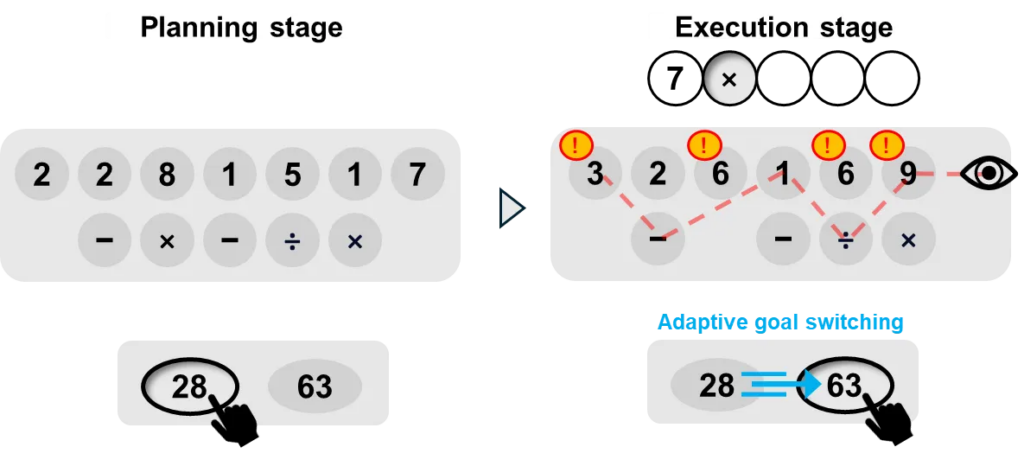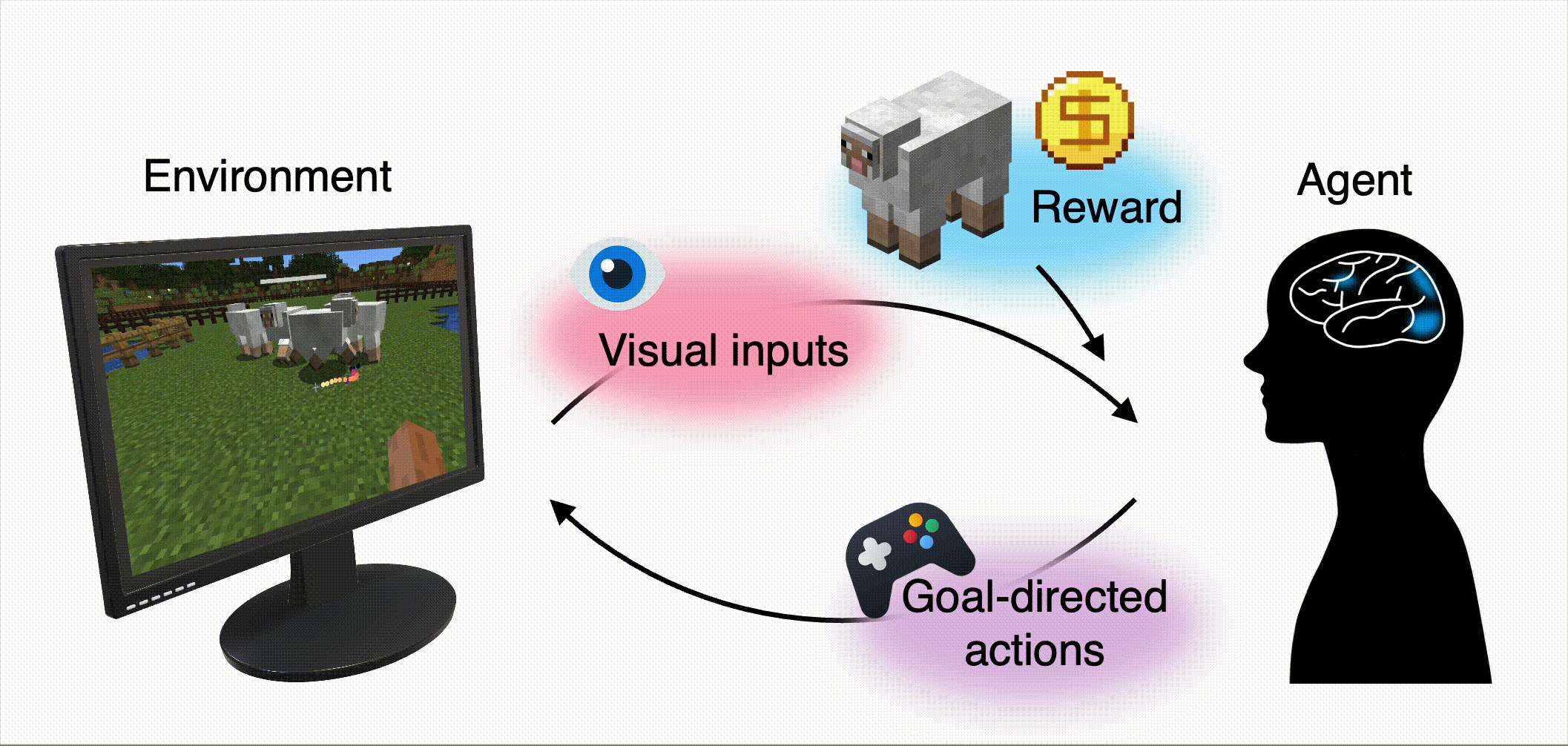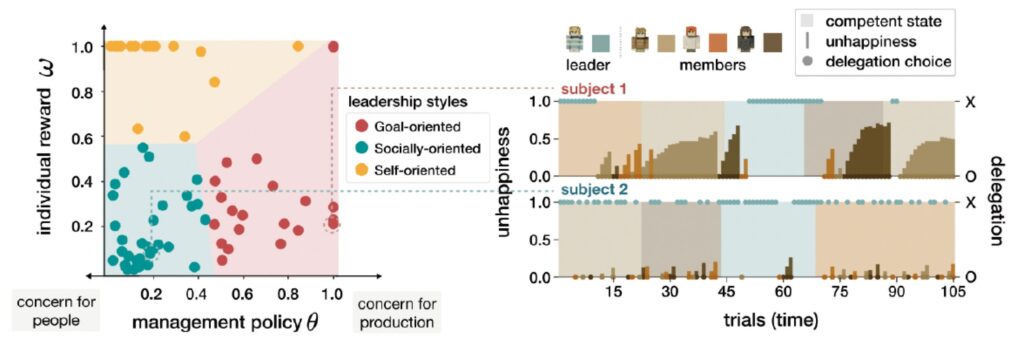Real-world decisions involve complex cognitive processes that unfold under uncertainty from partial and noisy observations. In this line of research, we examine the neurocomputational mechanisms of human decision-making—how humans infer latent states of the environment, update beliefs, and adapt actions to achieve goals. To probe these processes, we build interactive environments that elicit sequential planning, spatial navigation, and social interactions.
Adaptive planning and goal switching

How do people adapt their plans when the world changes? We study the neurocognitive mechanisms of goal switching using a Bayesian modeling framework and high-precision eye-tracking in a novel planning task that introduces unexpected changes. We quantify individual differences in adaptive planning, link them to value-based decision strategies, and map their neural signatures with fMRI.
Spatial foraging

Alternative: How do humans adjust reward-collection strategies in complex, uncertain environments? Using a 3D real-time Minecraft task under limited information, we examine how participants develop individually optimal strategies by leveraging the spatial distribution of rewards. To capture these behaviors, we employ a generative model that integrates dynamic planning with a policy-mixture framework and benchmark its performance against reinforcement learning algorithms. With concurrent fMRI, we examine how latent state and value representations in the brain update as the environment evolves.
Integrative vision during closed-loop interaction

How does reward shape visual representations during goal-directed behavior? Using an interactive video game task, we investigate how reward signals modulate visual representations and how these, in turn, guide action decisions. Our goal is to understand the interplay of perception, action, and cognition as an integrated process unfolding in naturalistic, closed-loop settings.
Neurocomputational modeling of leadership during delegation decisions

How do different leaders prioritize team characteristics such as capability and personality? Effective leadership shapes group outcomes by strategically balancing competing priorities. We derive data-driven categorization of leadership style by systematically parameterizing social actions, and use computational models to capture individual strategies, and identify the underlying neural computations that guide leadership decisions.